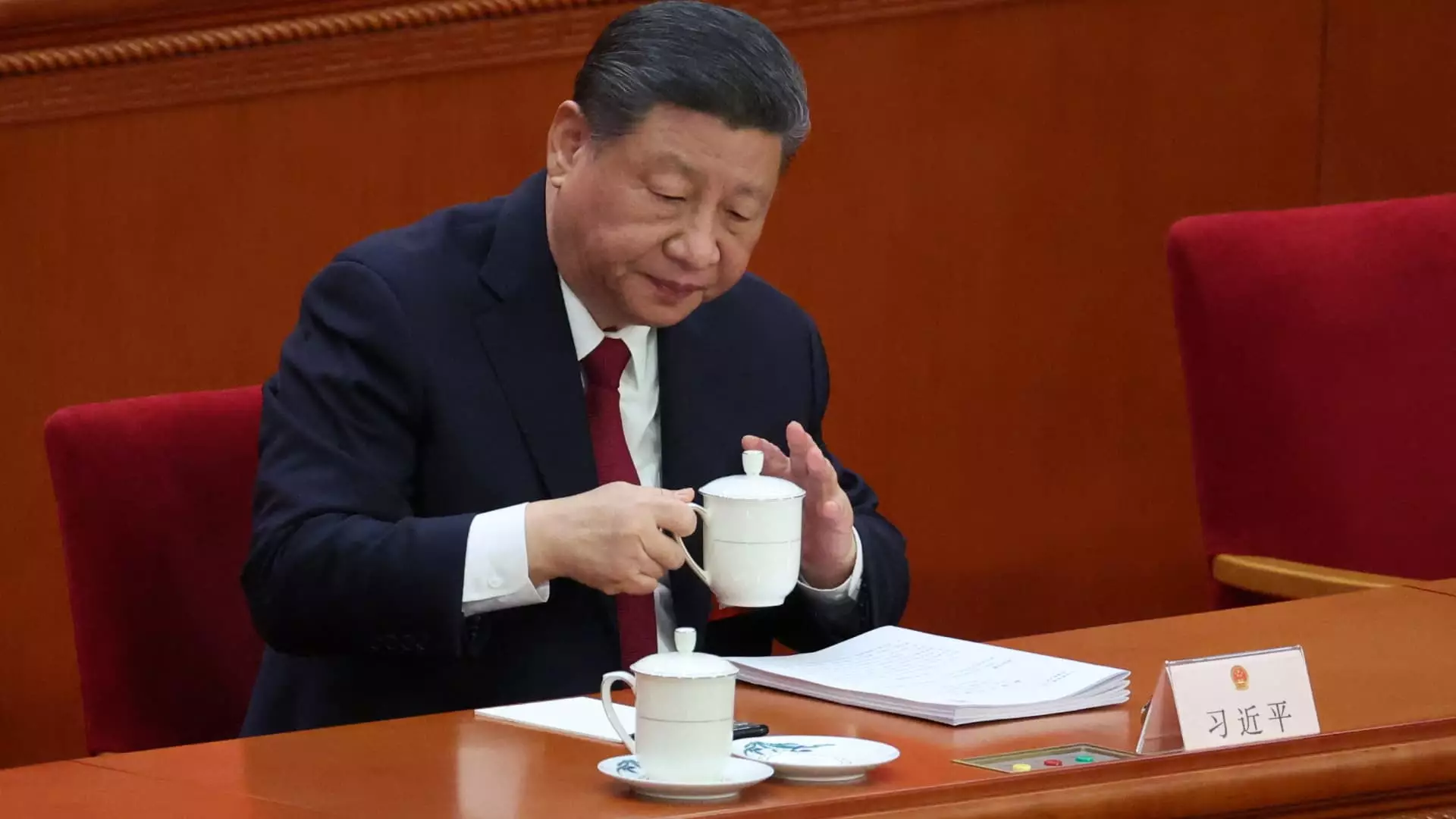China’s economic landscape is facing significant turbulence as external factors—including escalating tensions with the United States—create a more complex environment for its growth ambitions. President Xi Jinping’s recent meeting with the Politburo reflects an acute awareness of these disruptions and a commitment to mitigating their impact. The call for targeted measures to assist struggling businesses is not just a routine administrative response; it highlights a precarious balancing act between economic stability and political assertiveness.
The mortal threat of trade wars is palpable, with tariffs rising above 100%, and the response from Wall Street—downgrading China’s GDP predictions—portends a potential downturn. Amidst all this chaos, Beijing’s goal of achieving around 5% growth this year appears increasingly lofty. The cliché of safeguarding “national interest” must evolve to incorporate the well-being of local enterprises burdened by foreign policy missteps.
Financial Stability: A Tightrope Act
The Politburo’s focus on multiple measures to support businesses hints at a proactive approach, but the potential solutions offered—like interest rate cuts and reductions to reserve requirements—seem rooted in traditional thinking. It’s critical to ask whether these strategies are sufficient in a world where innovation and risk management have become paramount. The time for complacency is over; China must recognize the need for agile policy-making that anticipates not only immediate economic challenges but also future uncertainties.
The call for timely financial stimulus feels reassuring, but it also reveals a significant understanding of the importance of nimbleness. As Zong Liang suggests, targeted support for various sectors is necessary, yet the process of analyzing which industries need help and how to assist them could prove cumbersome. Policymakers seem to prioritize immediate easing measures, but they should also encourage a long-term shift in focus toward self-sufficiency; dependency on international markets is a tenuous position to maintain in a volatile geopolitical landscape.
Empowering Middle Classes as Catalysts for Growth
Among various strategies proposed, the emphasis on improving the income of middle and lower-income groups represents a refreshing acknowledgment that a robust domestic market is crucial to stability. Investing in the purchasing power of the average consumer can create a buffer against external shocks significantly. Rather than merely hovering around the top-tier of global economies, it would serve China well to equip its citizens with resources and opportunities that drive localized consumption.
The idea of increasing services consumption also offers a pathway out of the looming economic dialogue that focuses solely on manufacturing and exports. Encouraging a service-oriented economy could deliver a dual advantage: insulating China from the vicissitudes of international trade while promoting job creation in sectors that are often more resilient to external pressures.
The Need for Technological Integration
As the Politburo notes the necessity for further technological development, particularly in artificial intelligence, it is important to understand this isn’t purely a matter of keeping pace with global standards. Technological advancements can drive efficiencies that ultimately lead to more robust economic frameworks. But China’s approach must go beyond mere integration; it requires fostering innovation ecosystems where new ideas can flourish independent of traditional paradigms.
In contrast to merely initiating new policies, the government should encourage collaboration and input from private stakeholders who can offer insights into real-world challenges. This is where the upcoming private sector law plays a key role; it should not only simplify regulations but actively solicit business participation in the policymaking process.
A Cautious Optimism Amid Uncertainty
The latest gathering of the Politburo aligns with an overarching narrative of caution intertwined with optimism. While immediate measures may not seem radical or innovative, they provide a foundation for resilience. The assessment that Beijing is not rushing toward sweeping stimulus packages is prudent; it’s essential that they gauge the effectiveness of any interventions before swallowing them whole.
However, a lack of urgency could also be misinterpreted as complacency. The quickly changing global environment demands that China recalibrates its strategies in real-time, coupling analytics with decisive action. The potential for growth and recovery exists, yet the framework for realizing it will require a delicate balance of innovation, foresight, and an unyielding commitment to the Chinese people’s economic welfare.


Leave a Reply